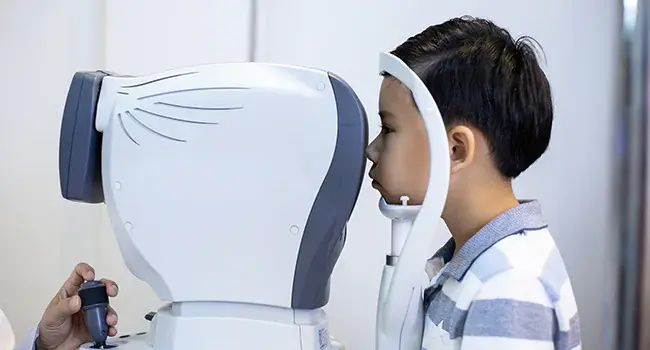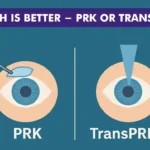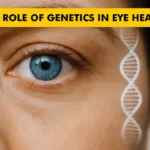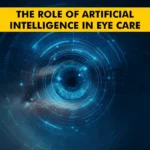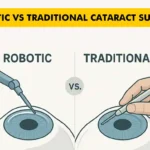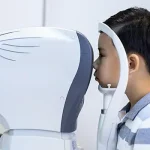We all know that various childhood eye diseases and disorders can influence a child’s eyesight. Hence, if the paediatrician thinks there’s an eye problem or your kid fails a pediatric vision test, they can send you to a specialist in eye care for children, i.e. a pediatric ophthalmologist, for further testing. Early detection is crucial to prevent vision abnormalities, especially in children, as it may impact their well-being and overall development. Hence, getting to understand the exact problem is vital.
Looking for a pediatric ophthalmologist in India?
Find an Eye Specialist Near You!
Let’s start with the basic definition of what pediatric ophthalmology is all about. In simple terms, paediatric ophthalmology concentrates on the different illnesses that impede visual development in a child. Experts in treating various pediatric eye problems are called pediatric ophthalmologists.
The emphasis of paediatric ophthalmology, a relatively recent subspecialty of ophthalmology, is on kid’s eyes until 16 years of age. Since specialised expertise and methods are required to diagnose the visual needs of a child effectively, you must learn more about who a pediatric ophthalmologist is and how they can help.
What Do Pediatric Ophthalmologists In India Do?
A pediatric ophthalmologist is specially trained to address eye issues in children, including difficulties with pediatric vision testing, reading, or learning, as well as providing necessary surgical or medical interventions for eye disorders.
This specialised field of ophthalmology facilitates the early detection of vision problems in young patients. If childhood eye diseases are left untreated within the first six months after birth, they can lead to lasting vision impairment. This critical period is vital for the development of the optic nerve, and failure to address eye issues during these initial months can result in irreversible damage to a child’s eyesight. Hence, early detection of pediatric eye problems is facilitated through the field of paediatric ophthalmology.
Pediatric Eye Problems In India: Symptoms to Worry About
Detecting vision problems early in children is crucial, as untreated eye defects within the first six months of birth can lead to lifelong visual impairment. Many young children may not even realise they have vision problems. Hence, paying attention to any signs they might show is very important.
Some common signs that indicate that a child might need to see a pediatric ophthalmologist include:
- Presence of a white or yellow substance in the pupil
- Frequent squinting
- Eyes moving or jerking back and forth
- Excessive watery eyes
- Constant rubbing of the eyes
- Crust or pus in the eyes
- Misaligned or cross-eyed vision
- Bulging eyes or drooping eyelids
- Persistent redness in the eyes
- Consistent head tilting or facial turning
Common Eye Problems in Childhood
Children’s eyes develop as they age, but there is also an increased chance of pediatric eye problems. Therefore, it is imperative to protect your child’s vision. Here are some common eye problems that a child might complain of:
- Amblyopia: This is a condition (also called lazy eye) where the brain does not correctly process one eye’s impulses. As a result, the brain starts ignoring them. This prevents the weaker eye from developing its vision and causes long-term visual issues.
- Chalazion: This occurs due to an obstructed or enlarged oil gland in the eyelid. It results in a lump on either the upper or lower eyelid, which can expand, leading to eyelid droop that may obstruct the child’s pupil and hinder their eyesight.
- Nearsightedness: This pediatric eye problem is typically caused by irregularities on the surface of the eyes. This prevents light from correctly focusing on retina. It can be treated with prompt diagnosis and the doctor’s recommended glasses or lenses.
- Strabismus: When the eyes are not correctly aligned with one another and point in separate directions, it’s called strabismus. This can lead to amblyopia if not treated immediately.
- Epiphora: This condition involves an overproduction of tears or extremely watery eyes. It may result from blocked tear ducts, allergens, infections, or diseases affecting the eye’s surface.
Tips For Paediatric Ophthalmology Care
Many paediatric ophthalmology care methods can help kids save their eyes. Here are the three best eye care tips to keep in mind:
- Adequate Rest for Eyes: It’s advised to take regular breaks every 30 to 40 minutes, whether reading, writing, or using a computer. Reduced use of handheld devices, cell phones, and other electronic devices is also necessary.
- Encourage Outdoor Games: Including more outdoor activities with your child, such as cycling or swimming, is advantageous. These leisure activities help your child’s hand-eye coordination and promote physical fitness.
- Say Yes To Healthy Habits: A child must get eight hours of sleep every night to avoid eye fatigue. Foods high in lutein and zeaxanthin can help prevent free radical damage to the eyes.
If your child suffers from any visual problems, visit the nearest Centre For Sight hospital in India and get your child’s vision tested. Centre for Sight, India, aims to deliver quality eye care. It offers comprehensive and cutting-edge eye care services. Furthermore, the centre provides amenities on par with international standards and among the nation’s best.
FAQs
What is a pediatric eye doctor?
A pediatric eye doctor is trained to diagnose and treat eye conditions in children, including vision problems and eye diseases.
What is the study of pediatric ophthalmology?
Pediatric ophthalmology focuses on the development of the visual system in children and the diagnosis, treatment, and management of childhood eye diseases and conditions that affect visual development.
Why is pediatric ophthalmology important?
Pediatric ophthalmology is crucial for early detection and treatment of eye issues in children, helping to prevent long-term vision problems that can impact learning, development, and overall well-being.
Can a paediatrician treat the eye?
Paediatricians can screen for fundamental pediatric eye problems but often refer children to a pediatric ophthalmologist for specialised care if more serious conditions are suspected.
When to worry about a child’s eye?
Parents should consult an eye specialist if their child experiences symptoms like constant eye rubbing, squinting, misaligned eyes, frequent headaches, or difficulty seeing, as these could indicate vision problems.
